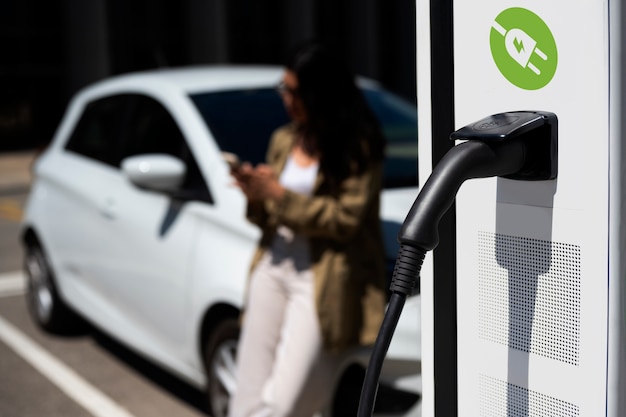
As electric vehicles (EVs) gain popularity, reliable charging infrastructure is becoming increasingly vital. In British Columbia, the adoption of EVs is on the rise, fueled by environmental concerns and supportive government incentives aimed at promoting zero-emission vehicles. This shift towards electric transportation reflects a broader commitment to sustainability and reducing carbon footprints.
This investment involves several factors influencing the total expense, including the installation process, typical installation costs, project requirements, and equipment costs. Knowing these details will help you make informed decisions whether you are a homeowner, property manager, or business owner looking to enhance your EV infrastructure.
Level 1 EV charging stations are the simplest type of charging setup, typically used in residential settings. These chargers connect to a standard outlet, making them ideal for homeowners with an all-electric vehicle.
The installation costs for a Level 1 charger are relatively low, generally ranging from $300 to $800. This includes the charger’s price and any minor electrical work needed to use your nearest outlet. The process is straightforward, often requiring minimal setup.
Factors influencing costs include the distance to the nearest outlet, any modifications to your home’s electrical system, and whether you need additional features like a dedicated circuit. For most individuals who have a daily commute, a Level 1 charger provides adequate charging overnight.
Level 2 EV charging stations are commonly used for charging electric vehicles at homes and businesses. Unlike Level 1 chargers, which slow down the process, Level 2 chargers provide faster charging times using a 240-volt power source.
The costs associated with installing a Level 2 charging station typically range from $1,200 to $3,500. This range accounts for the charger’s price, which can be $500 to $1,500, and installation fees. Additional factors to consider include the electrical circuit requirements and whether an electrical panel upgrade is necessary. If your electrical capacity is insufficient, upgrading your panel can cost an extra $500 to $2,000.
In residential settings, homeowners may install chargers in their garage or outside. For multi-unit residential buildings, distributing installations requires careful planning—each parking space needs access to power. Therefore, costs may vary based on your property’s layout and the typical installation method.
DC Fast Chargers are powerful chargers typically found at commercial or public charging stations, providing quick and efficient charging for electric vehicles (EVs). These units can charge a vehicle significantly faster than standard chargers, making them crucial for high-traffic areas.
However, the installation of DC Fast Chargers comes with higher costs. Depending on the model and features, the initial equipment can range from $10,000 to $40,000 per unit. Beyond the equipment, advanced installation may require major electrical service upgrades.
Moreover, businesses need to consider their parking capacity. If demand grows or you expect future growth in EV usage, planning for additional chargers is essential, even before they’re necessary.
The provincial government offers rebates through programs designed to encourage the use of electric vehicles and reduce greenhouse gas emissions.
For instance, the CleanBC Go Electric Program provides rebates for installing Level 2 EV chargers. Homeowners and businesses can receive financial support that significantly lowers upfront costs. Additionally, some electric utility companies in British Columbia may offer incentives, making installing charging stations even more affordable.
It’s essential to hire certified installers to ensure that your installation meets all regulations and maximizes the benefits of these incentives. Property owners can reduce installation costs and contribute to a greener, more sustainable future by taking advantage of these government incentives and rebates.
Residential Installations are typically simpler and more cost-effective. Homeowners or small multi-unit dwellings usually need one or two electric car chargers, allowing for straightforward installations. Typical requirements include ensuring adequate electrical supply and possibly some minor electrical upgrades, but the installation can often be completed without extensive modifications. Depending on your location in British Columbia, costs can range from $1,000 to $3,000, including the charger and professional installation.
Commercial Installations, on the other hand, are more complex and costly. Businesses need multiple chargers to meet the demands of various vehicles, which requires a more robust power supply and often significant electrical upgrades. These installations can involve parking capacity and accessibility, and costs can range from $10,000 to $50,000 or more, depending on the number of chargers and infrastructure needs. Luckily, larger incentives or rebates are often available to help offset these costs.
If you’re considering installing an EV charging station in British Columbia, here are some practical tips to minimize costs:
Following these tips can effectively minimize your EV charging station installation costs while preparing for a sustainable future.
Foreseeson EVSE Technology Inc.
COPYRIGHT © 2024 FORESEESON EVSE TECHNOLOGY INC.